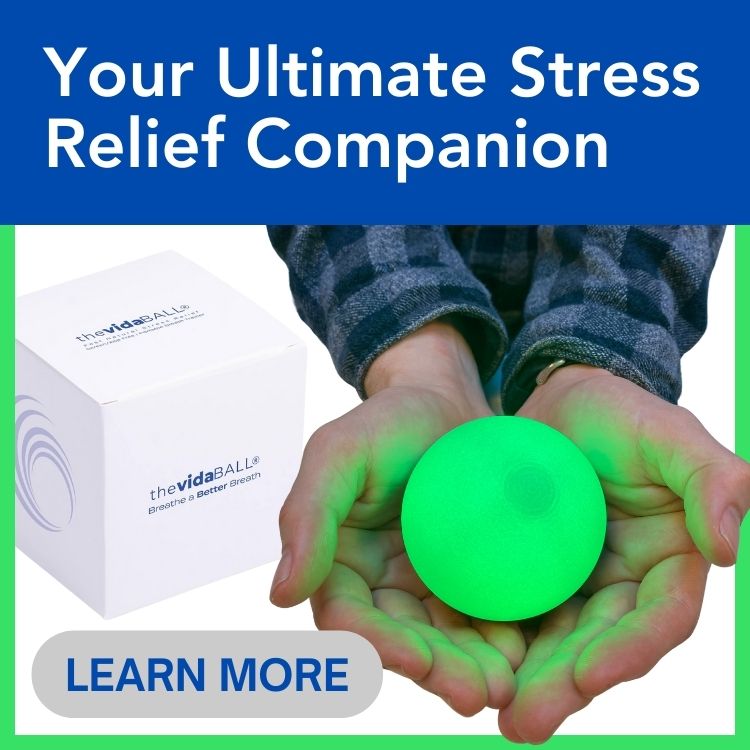Your easy self-care routine for detox and cleansing
Written by: Victoria Williams, R.H.N. From Queen of the Thrones®
The word detox is thrown around a lot these days, and for good reason. Detox is just as important for your wellness as getting enough sleep at night or drinking enough water.
You’ve heard of hundreds of ways to support your body’s daily detox. From lotions and potions, to teas and supplements, everyone knows how important this process is in today’s toxic world, agreed?
But we’re going to keep it simple and focus on 1 easy self-care practice you can do every night that makes all of the other things you’re already doing work better: Castor Oil Packs.
First, what’s the difference between detox and cleansing?
Detoxification is the process your body uses to break down toxins, hormones, heavy metals, etc. and packages them for elimination.
Cleansing is the way that your body eliminates the waste, either through bowel movements, urine, sweat, breath, or your period.
It’s kind of like taking out your garbage: Detoxification is when you throw all of your waste into a garbage bag and package it up for garbage day. And cleansing is when you take it to the curb and the garbage truck takes it away. That’s always a great feeling, agreed?
What role does the liver play in detox?
Out of all the organs in your body, your liver is the heavy-lifter of detoxification.
It filters toxins from your blood the way an air filter cleans pollutants from the air. When the filter is clogged, it doesn’t work very well, and the same is true for your liver. This is why it’s the best place to start for overall detox and cleanse support.
What is a Castor Oil Pack?
So, you might be wondering: What the heck is a Castor Oil Pack, and how it does it help with natural detox, right?
A Castor Oil Pack is Castor Oil applied to an organic cotton compress and worn over the liver area.
Castor Oil comes from pressing the seeds from the Castor bean plant (A.K.A. the Palm of Christ) – a native of Africa, India, and the Mediterranean region. It’s a thick, golden oil that is rich in antioxidants and super nourishing for the skin, hair and nails.
Castor Oil Packs have been around for centuries and were popularized in North America in the 1900s by a bedside healer named Edgar Cayce. They’re a favorite of naturopathic doctors, functional medicine practitioners, massage therapists, and chiropractors, but in some circles they were thought of as “fringe” or “woo-woo”.
How do Castor Oil Packs work?
You might be thinking this too… How could oil on a piece of cotton impact your insides, right? Finally, in recent years, scientific research has helped unlock the mystery of how Castor Oil Packs work.
You see, Castor Oil is made up of 90% ricinoleic acid, a fatty acid known for its antimicrobial1, antiviral2 and anti-inflammatory3 properties.
The soft, gentle compression of the Castor Oil Pack on the skin helps move the body into a relaxed state via stimulating receptors in the skin4 5, similar to a hug or a weighted blanket.
The pack also stimulates somatic visceral reflexes via dermatomes and Traditional Chinese Medicine meridians that are thought to be connected to detox and cleansing organs including the liver, gallbladder, stomach, kidneys, adrenals, and colon.
Stress is a factor in all types of dis-ease
Castor Oil Packs simply help move the body into the parasympathetic ‘rest and digest’ state where detox and cleansing are optimized.
The power of the relaxed state is not to be underestimated in our fast-paced high stress world, agreed? There are stressors all around us, from obvious things like traffic jams or pressure at work, to subtle things like plastics in your environment or the blue light from your phone screen.
After all, stress is a factor in all types of dis-ease. From cancer, to autoimmunity, to mental health, to hormonal imbalances; stress aggravates symptoms. So, self-care practices that help balance your stress are KEY.
Quality of materials for your Castor Oil Packs
Your goal is to detox, not re-tox, right? Quality is important when it comes to choosing your Castor Oil Pack!
For your oil: Look for 100% pure, certified organic, hexane-free Castor Oil always in a glass bottle. If you have Castor Oil in a plastic bottle, throw it away! Castor Oil is an amazing carrier oil, so it can carry any substance with it (good or bad), into your skin. It should never be bottled in plastic.
For your pack: Always go for organic cotton, linen, or wool touching your skin. Avoid cotton blended with synthetic fibers (ie. cotton velour) or materials like bamboo that are highly treated with chemicals.
The Queen of the Thrones® Castor Oil Pack Kit is ideal because it’s made with organic cotton, a protective “less mess” layer and comfortable straps that tie it onto your body.
So, how do you do a Castor Oil Pack for daily detox?
Step 1: Apply 1 tbsp of organic Castor Oil to your Queen of the Thrones® Castor Oil Pack.
Step Two: Place your pack over your liver area (under your right rib cage) and tie it in place with the adjustable straps.
Wear for 1 hour before bed, or even better, wear overnight to help you cleanse while you sleep. How’s that for efficiency? Plus, according to Traditional Chinese Medicine, the time of liver detox is between 1-3 am!
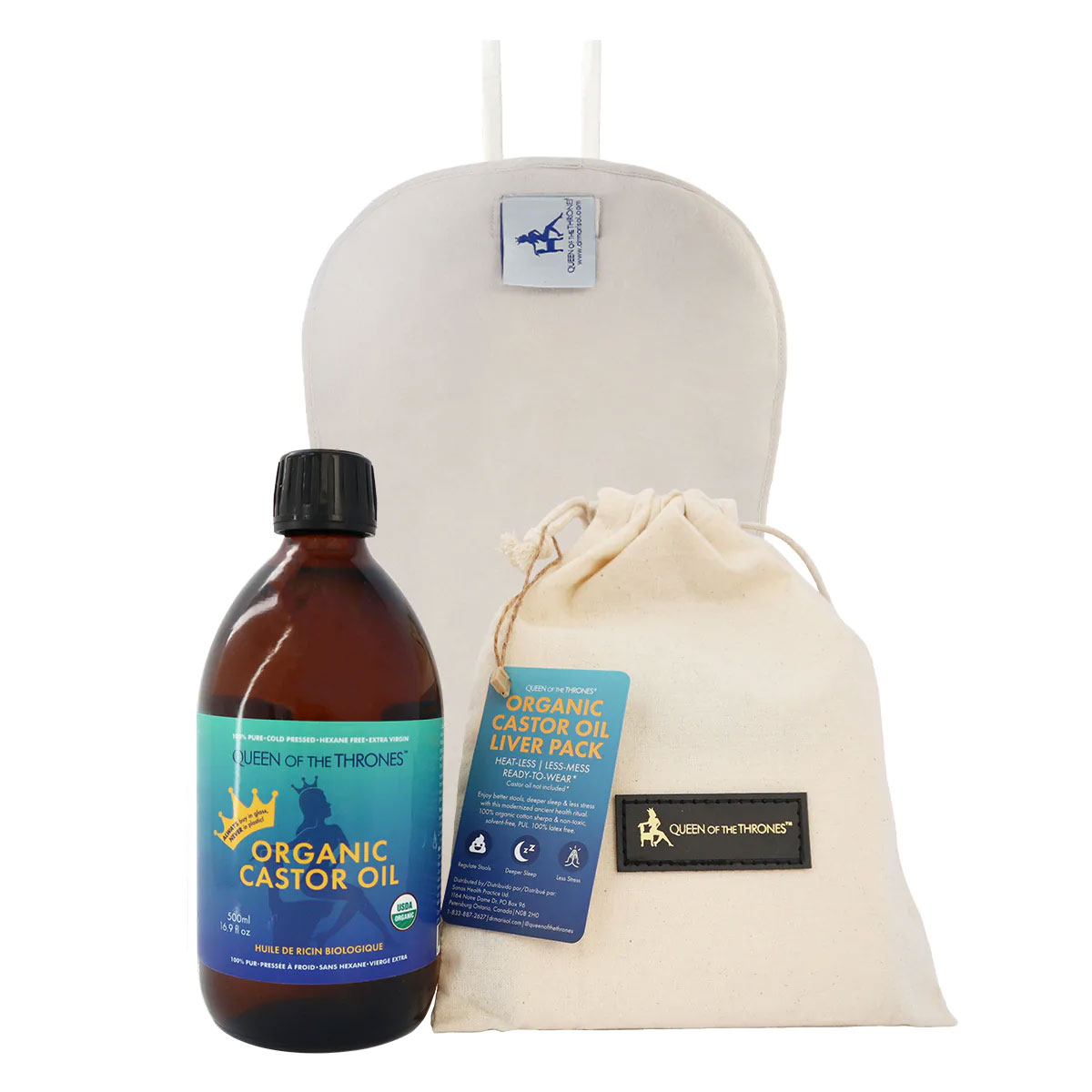 Remember: Castor Oil is an oil and it WILL stain clothing and bed sheets, so take extra care when preparing your pack and wear an old t-shirt overtop just in case.
Remember: Castor Oil is an oil and it WILL stain clothing and bed sheets, so take extra care when preparing your pack and wear an old t-shirt overtop just in case.
It’s the little things over time that make a big difference
The truth is, we can run but we can’t hide from toxins in today’s world. But we can do daily detox practices to help support our bodies to deal with them better and keep things flowing.
And who doesn’t love a little self-care in the evenings, especially when it helps you poop better, sleep better and stress less, agreed?
References:
- Marwat SK, Rehman F, Khan EA, Baloch MS, Sadiq M, Ullah I, Javaria S, Shaheen S. Review – Ricinus cmmunis – Ethnomedicinal uses and pharmacological activities.Pak J Pharm Sci. 2017 Sep;30(5):1815-1827. PMID: 29084706
- Elkousy RH, Said ZNA, Abd El-Baseer MA, Abu El Wafa SA. Antiviral activity of castor oil plant (Ricinus communis) leaf extracts. J Ethnopharmacol. 2021 May 10;271:113878. doi: 10.1016/j.jep.2021.113878. Epub 2021 Jan 27. PMID: 33515683.
- Vieira C et al. .Effect of ricinoleic acid in acute and subchronic experimental models of inflammation. Mediators Inflamm. 2000;9(5):223-8 PMID: 11200362
- Walker SC1, Trotter PD2, Swaney WT2, Marshall A3, Mcglone FP4. C-tactile afferents: Cutaneous mediators of oxytocin release during affiliative tactile interactions? Neuropeptides. 2017 Aug;64:27-38. doi: 10.1016/j.npep.2017.01.001. Epub 2017 Jan 19. PMID: 28162847
- Rolls ET et all. Representations of pleasant and painful touch in the human orbitofrontal and cingulate cortices. Cereb Cortex. 2003 Mar;13(3):308-17. PMID: 12571120

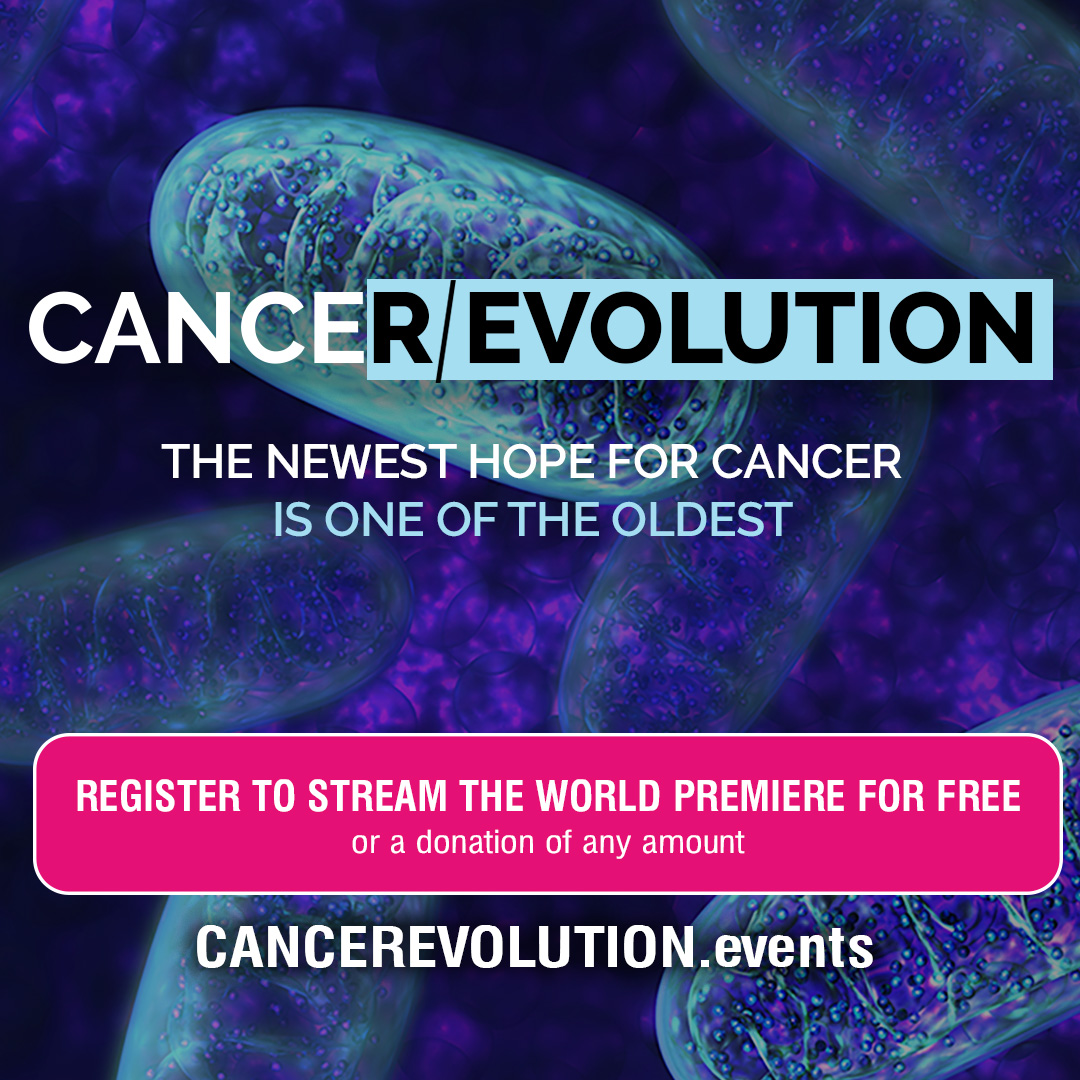
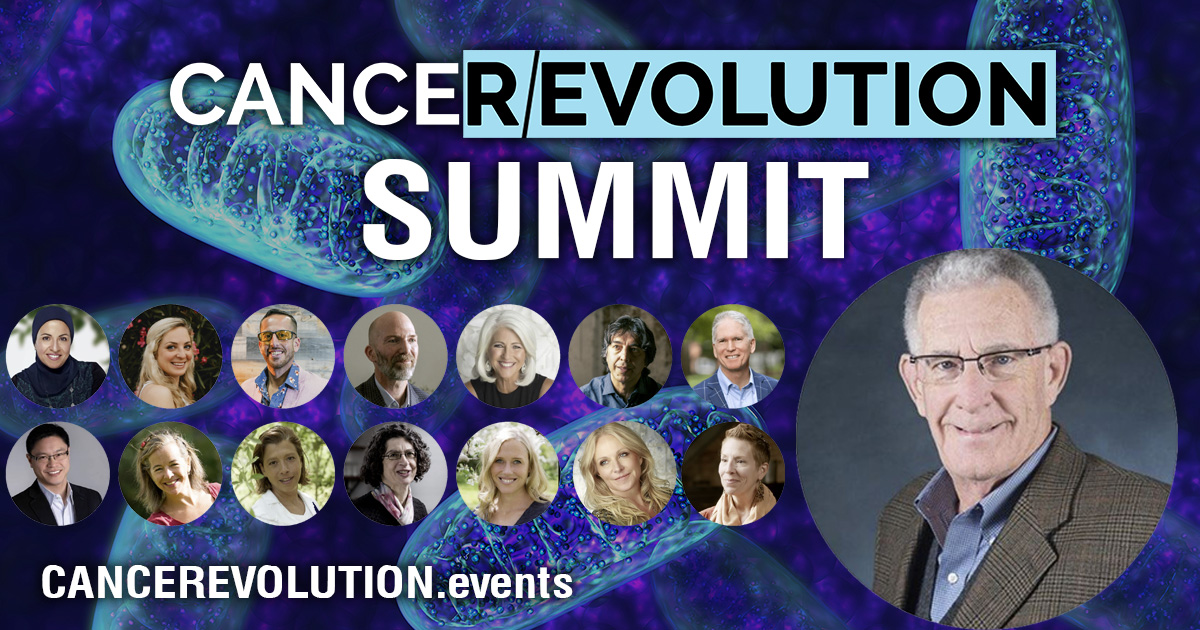

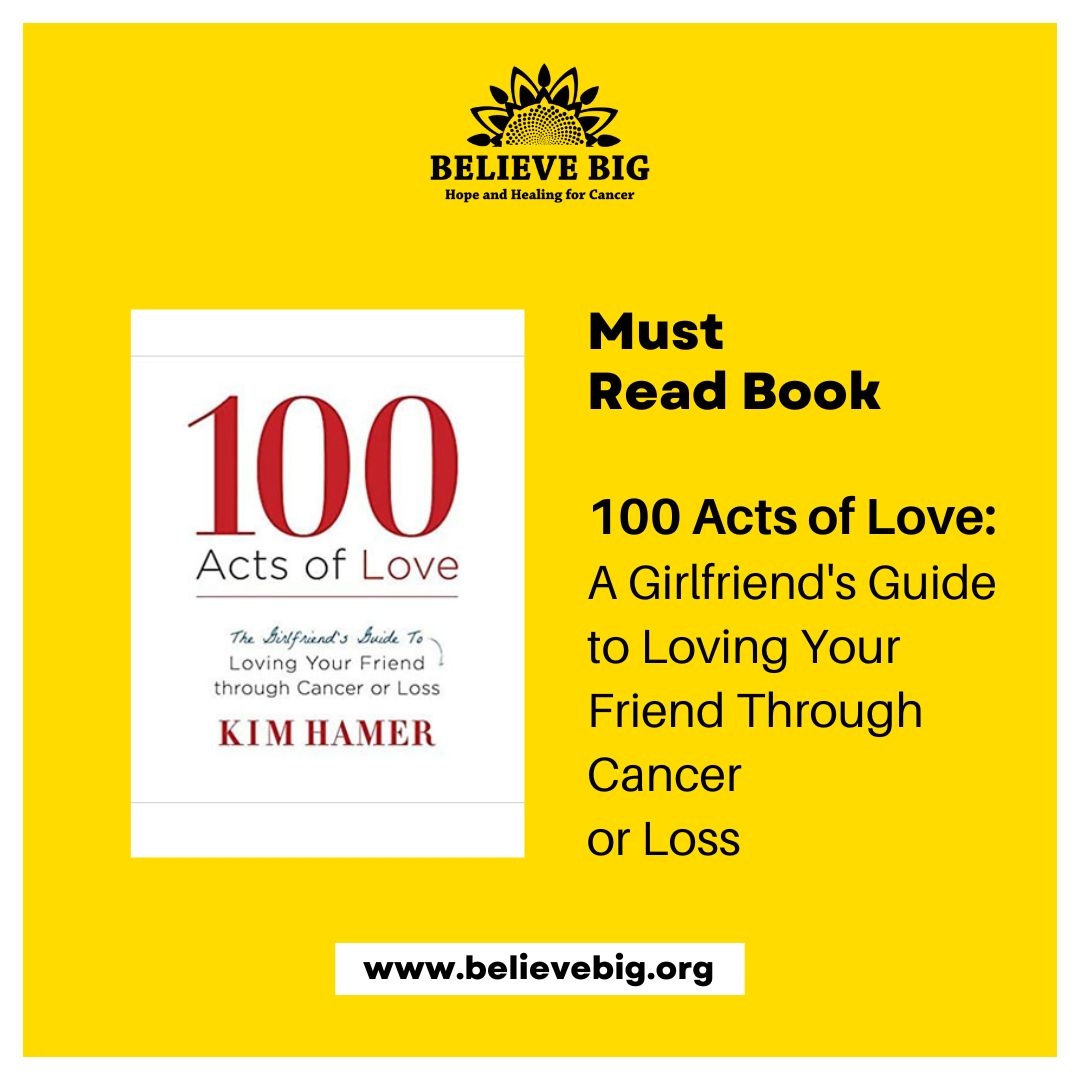




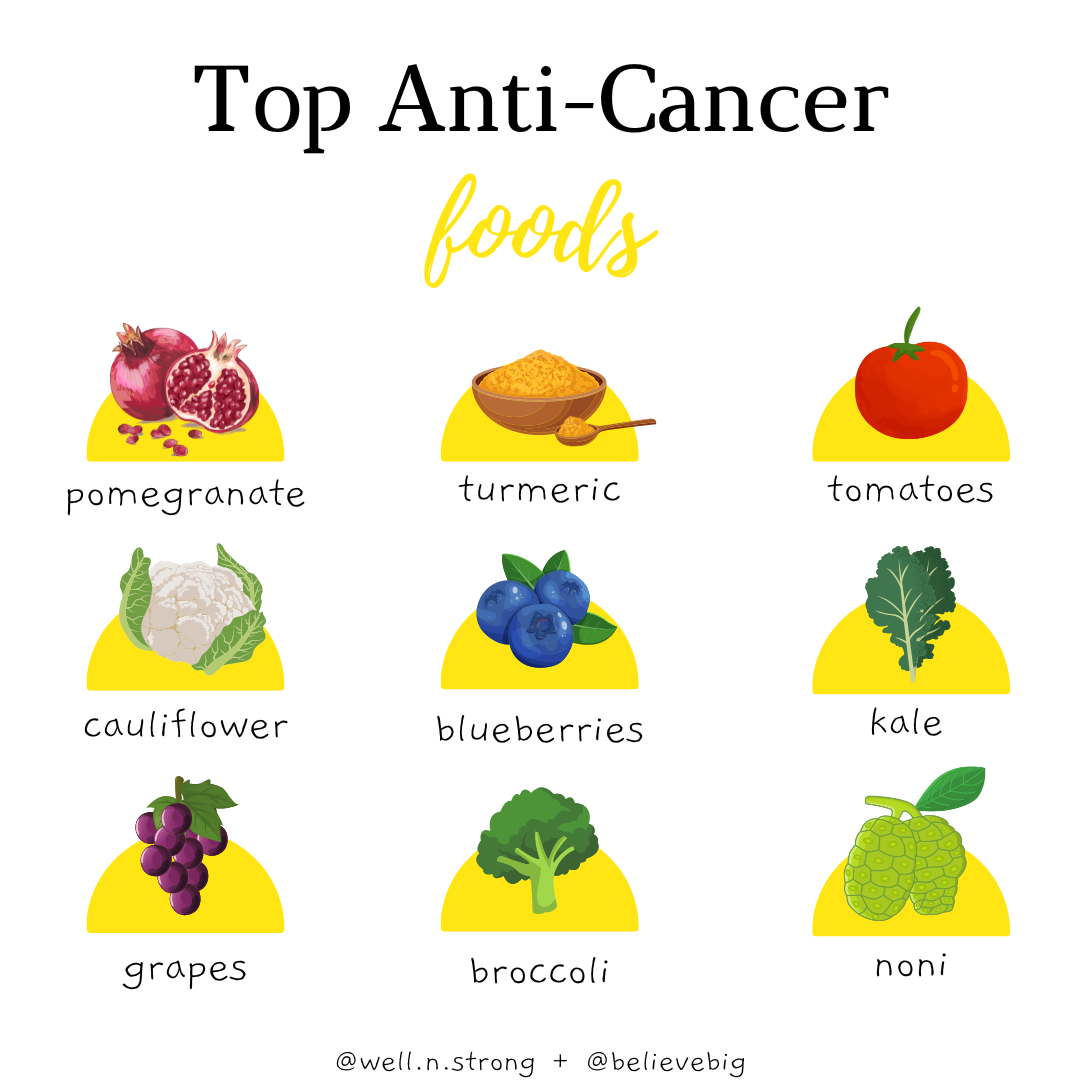 Cancer is a disease that is becoming increasingly common in today’s society, with many individuals experiencing its devastating effects. In this blog we will go over a handful of the top anti-cancer foods and essential oils that have anti-cancer agents.
Cancer is a disease that is becoming increasingly common in today’s society, with many individuals experiencing its devastating effects. In this blog we will go over a handful of the top anti-cancer foods and essential oils that have anti-cancer agents. 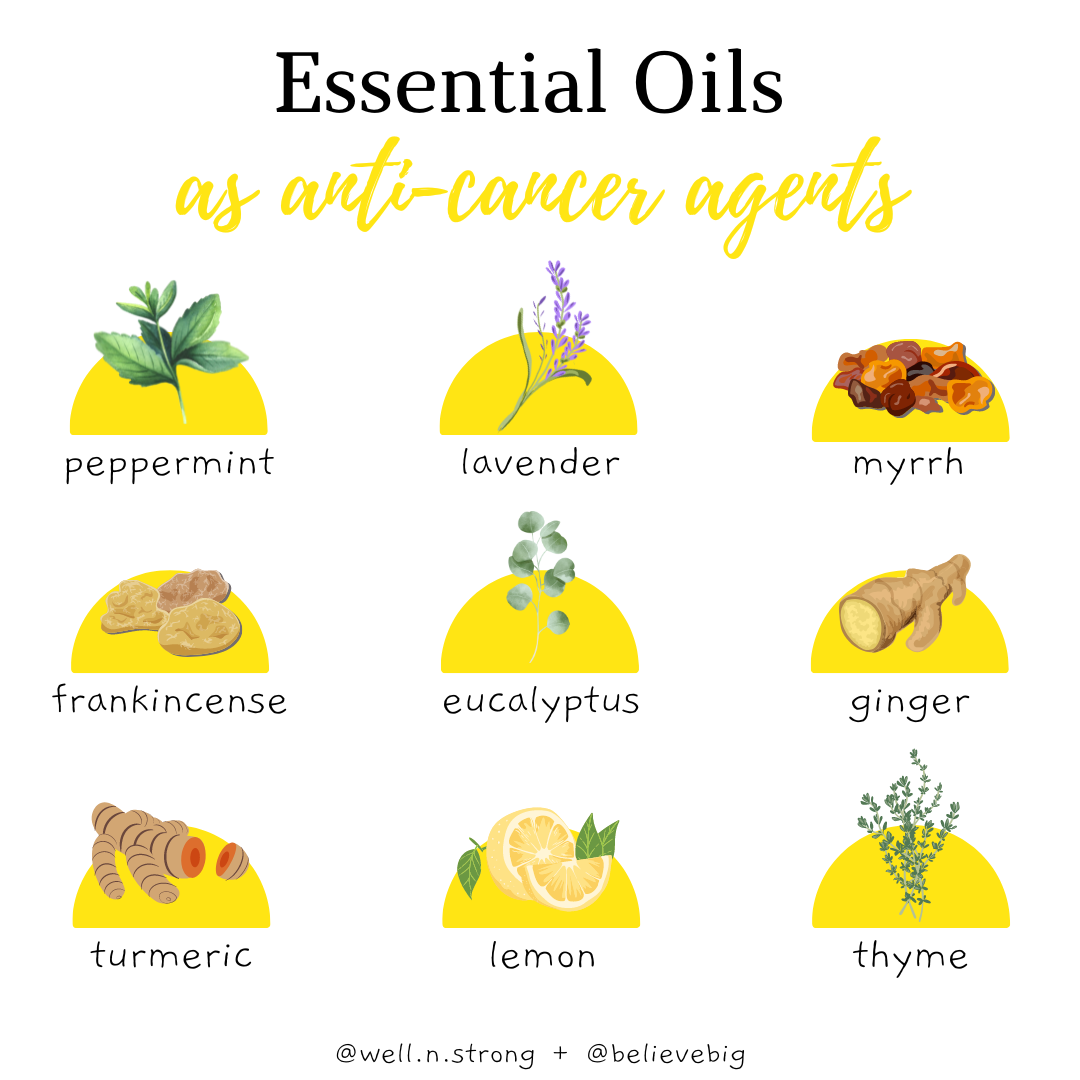 In conclusion, There are several essential oils that contain anti-cancer agents and have been shown to provide numerous benefits. For example, frankincense oil has been found to inhibit the growth and spread of cancer cells, particularly in breast and bladder cancers. Additionally, tea tree oil has been found to have anti-cancer properties, particularly in skin cancer. Other essential oils such as lavender, lemon, and peppermint have also been studied for their anti-cancer properties, with results suggesting that they may be effective in preventing the growth and spread of certain types of cancer cells. However, it is important to note that while essential oils may have potential benefits for cancer prevention and treatment, they should not be used as a replacement for conventional medical treatment.
In conclusion, There are several essential oils that contain anti-cancer agents and have been shown to provide numerous benefits. For example, frankincense oil has been found to inhibit the growth and spread of cancer cells, particularly in breast and bladder cancers. Additionally, tea tree oil has been found to have anti-cancer properties, particularly in skin cancer. Other essential oils such as lavender, lemon, and peppermint have also been studied for their anti-cancer properties, with results suggesting that they may be effective in preventing the growth and spread of certain types of cancer cells. However, it is important to note that while essential oils may have potential benefits for cancer prevention and treatment, they should not be used as a replacement for conventional medical treatment.







